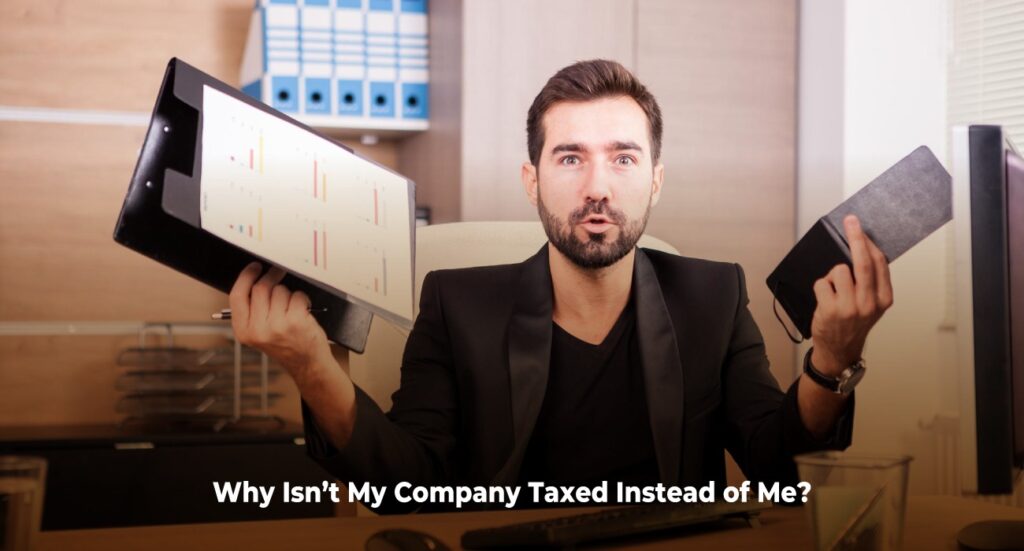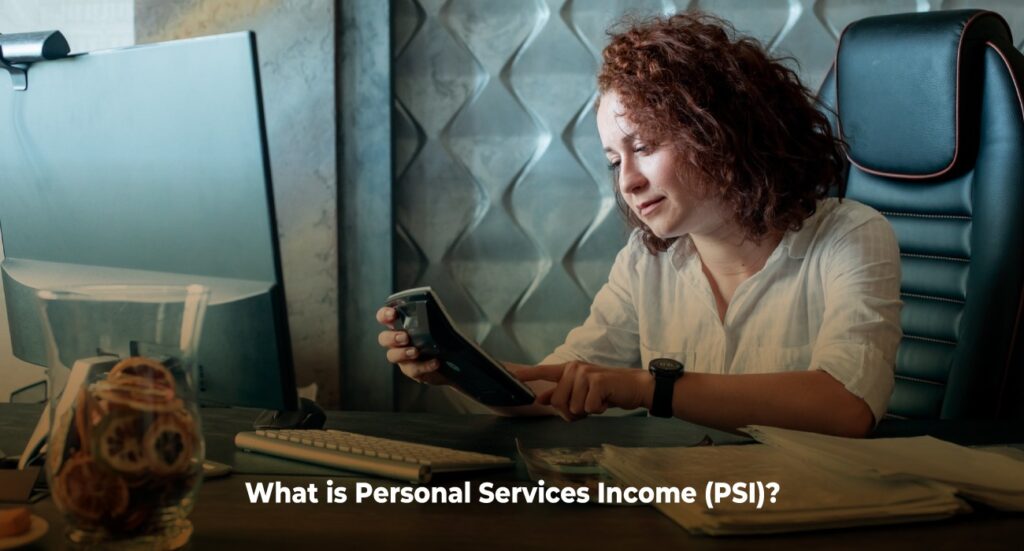PSI Income: Why the ATO Taxes You, Not Your Company
Are you a doctor, IT consultant, Engineer or professional operating through an interposed entity such as a company or trust, often referred to as a service entity, that receives income from your employer? If so, this article is a must-read to help you understand the latest ATO alert and avoid falling foul of Part IVA. Many professionals in this situation may be generating Personal Services Income (PSI) through their interposed entity. You might assume that PSI attribution rules don’t apply because the entity passes the PSI tests, qualifying it as a Personal Services Business (PSB). However, this is often not the case.
The ATO’s long-standing position is that when a company or trust is used to generate PSI, the net profits relating to this activity should generally end up being taxed in the hands of the individual who is performing the work, even if the PSI tests can be passed. If any of the profits are distributed to other related parties or are retained in a company and this results in those profits being taxed at a lower rate, then there is a risk that Part IVA could apply to cancel the tax benefit.

Why Isn’t My Company Taxed Instead of Me?
You might wonder why your company isn’t taxed on the profits it generates, with the entire income instead being attributed to you personally. This is because of the Personal Services Income (PSI) rules, which are specifically designed to ensure fairness in the tax system. These rules prevent individuals from using business structures, such as companies or trusts, to minimise tax on income earned through their personal skills, effort, and expertise.
Under the PSI regime, income derived directly from your personal work is considered your personal income, even if it flows through a company or trust. The company acts merely as a conduit, and the profits are attributed to you for tax purposes. This means you are taxed on the income at your individual marginal tax rate, rather than benefiting from the lower company tax rate.
The Australian Taxation Office (ATO) enforces these rules to ensure individuals pay the appropriate amount of tax on income they earn directly. While companies and trusts can provide legitimate tax and business benefits in some circumstances, they cannot be used to reclassify personal income inappropriately.

What is Personal Services Income (PSI)?
Personal Services Income (PSI) is income earned predominantly as a result of your personal efforts, skills, or expertise. It applies when more than 50% of the income you receive from a contract is directly linked to the work you do, rather than income generated through assets, the sale of goods, or a business structure.
To determine if your income is classified as PSI, you need to assess each contract separately. The terms and conditions of the contract, along with supporting documents like invoices or agreements, play a critical role in this assessment. These documents help identify what portion of the income is attributable to:
- Your personal labour, skills, knowledge, expertise, or effort, and
- Other factors, such as materials provided, or tools and equipment used.
If more than 50% of the income from a contract is linked to your personal efforts or skills, it qualifies as PSI. However, if 50% or less of the income is tied to your personal efforts, then the income from that contract is not classified as PSI.
Example: Imagine You’re a Civil Engineer
Imagine you are a civil engineer contracting for the Australian Rail Network. You provide services under a contract to design and oversee the construction of railway infrastructure. If the majority of the income from this contract is earned due to your expertise and project management skills, rather than from the use of other consultants as employees, machinery, equipment, or materials you supply, this income would likely be classified as Personal Services Income (PSI).
Now, suppose you use a company to invoice your employer for the work performed. The company pays you a wage, covers all expenses related to your work, and retains a profit. Under PSI rules, this remaining profit would not be taxed at the lower company tax rate. Instead, the profit is attributed to you personally and taxed at your individual marginal tax rate. This ensures that income earned primarily from your personal skills and effort is taxed fairly, preventing the misuse of business structures to reduce tax liability. Understanding these rules is crucial to avoid unexpected tax consequences and to remain compliant with ATO regulations.
On the other hand, if the income is mainly tied to the use of large-scale equipment or a team you manage, it may not fall under PSI.

Should You Ignore Tax Avoidance Rules and Follow Your Friends?
It’s not uncommon to hear from friends or colleagues about how they use service entities, such as companies or trusts, to reduce their tax liability by paying the lower company tax rate. While this might sound appealing, it’s important to understand that these arrangements often fall foul of the ATO’s strict rules, particularly when Personal Services Income (PSI) is involved.
We’ve seen many professionals ignore or misunderstand these rules, taking the risk of engaging in what the ATO considers tax avoidance. While it may seem like a shortcut to reducing your tax burden, the reality is that such practices can result in significant penalties, audits, and even legal action. In the long run, the risks far outweigh any short-term benefits. Instead of following others blindly, it’s crucial to seek professional advice to ensure your arrangements are both compliant and sustainable.
Conclusion
Navigating the complexities of Personal Services Income (PSI) rules and service entities can be challenging, especially with conflicting information from friends or colleagues. While their arrangements might seem beneficial on the surface, they could expose you to significant risks if not compliant with ATO regulations. The reality is that no two situations are alike, and blindly following others could lead to tax audits, penalties, and long-term financial stress.
At Investax, our Business Tax Specialists are here to cut through the noise and provide tailored advice based on your unique circumstances. Let us help you understand the rules, structure your finances effectively, and stay compliant with tax laws. Contact our team today to ensure your tax planning is aligned with your goals and free from unnecessary risks.
General Advice Warning
The material on this page and on this website has been prepared for general information purposes only and not as specific advice to any particular person. Any advice contained on this page and on this website is General Advice and does not take into account any person’s particular investment objectives, financial situation and particular needs.
Before making an investment decision based on this advice you should consider, with or without the assistance of a securities adviser, whether it is appropriate to your particular investment needs, objectives and financial circumstances. In addition, the examples provided on this page and on this website are for illustrative purposes only.Although every effort has been made to verify the accuracy of the information contained on this page and on our website, Investax Group, its officers, representatives, employees and agents disclaim all liability [except for any liability which by law cannot be excluded), for any error, inaccuracy in, or omission from the information contained in this website or any loss or damage suffered by any person directly or indirectly through relying on this information.





